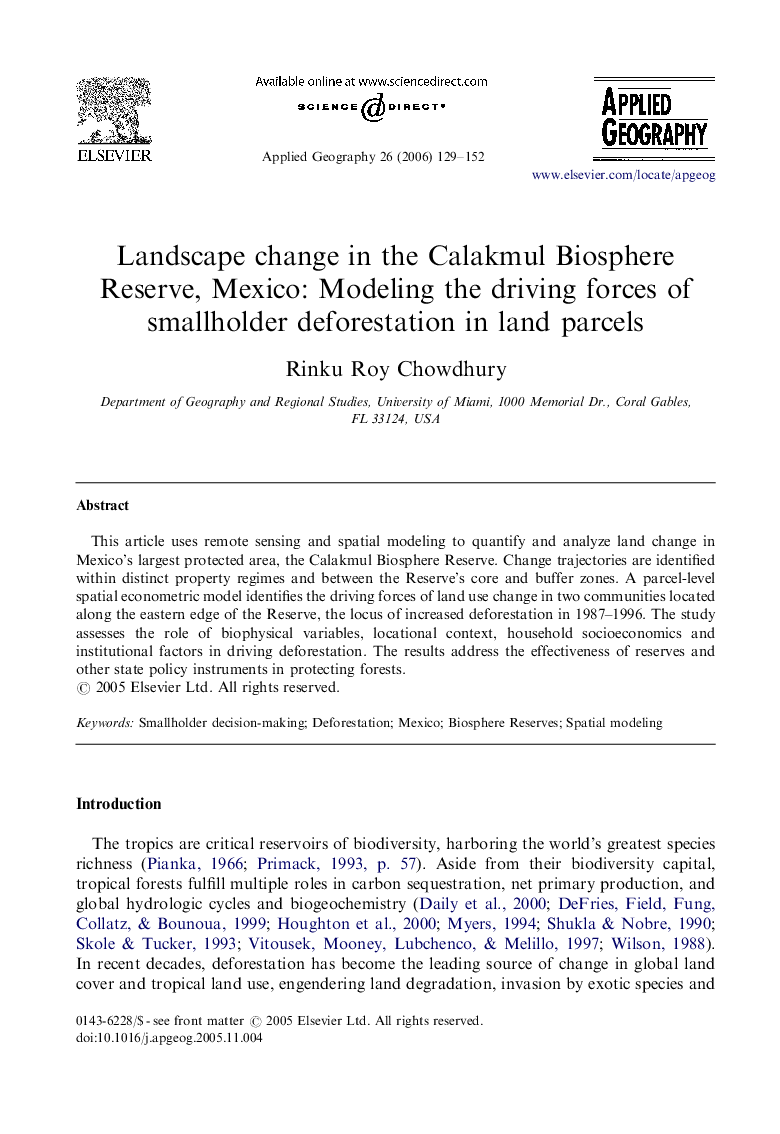| Article ID | Journal | Published Year | Pages | File Type |
|---|---|---|---|---|
| 83816 | Applied Geography | 2006 | 24 Pages |
Abstract
This article uses remote sensing and spatial modeling to quantify and analyze land change in Mexico's largest protected area, the Calakmul Biosphere Reserve. Change trajectories are identified within distinct property regimes and between the Reserve's core and buffer zones. A parcel-level spatial econometric model identifies the driving forces of land use change in two communities located along the eastern edge of the Reserve, the locus of increased deforestation in 1987–1996. The study assesses the role of biophysical variables, locational context, household socioeconomics and institutional factors in driving deforestation. The results address the effectiveness of reserves and other state policy instruments in protecting forests.
Related Topics
Life Sciences
Agricultural and Biological Sciences
Forestry
Authors
Rinku Roy Chowdhury,
